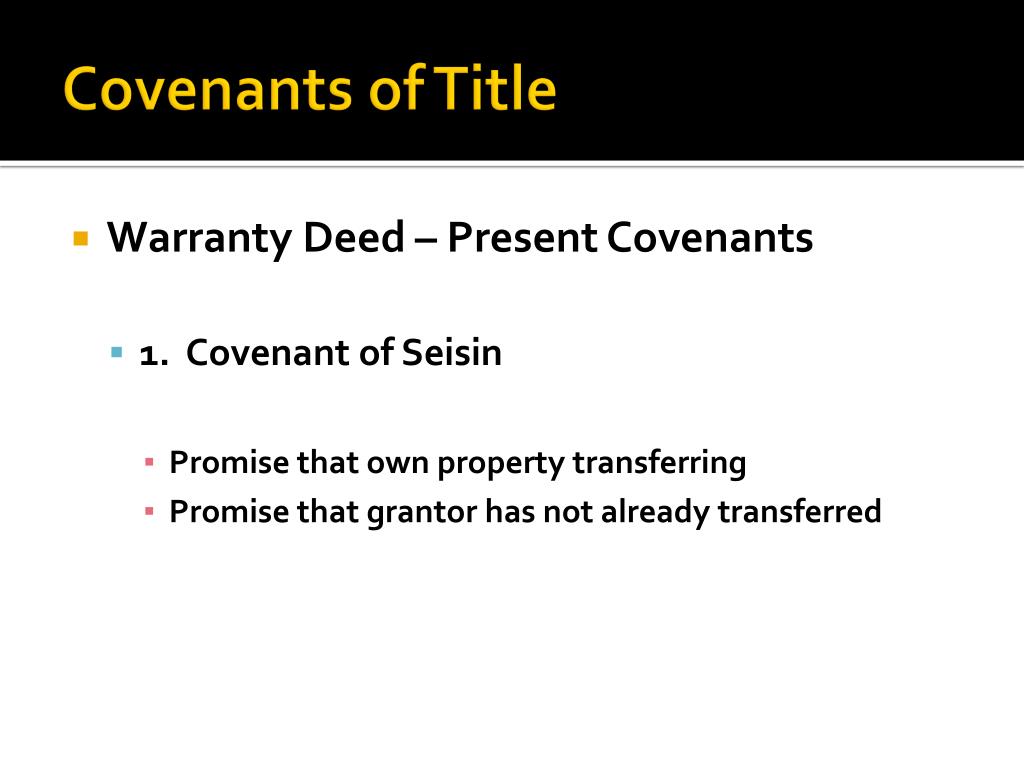
COVENANT OF SEISIN REAL ESTATE CODE
At the very least, you should keep the standard special warranty deed language in place and avoid the inclusion of any express covenants that might weaken the limitations to the covenant of seisin held by the Court in Cochran.Įxample: This conveyance contains no implied covenants including, but not limited to, the covenant of seisin and the covenant of good right to convey, other than those codified in Texas Property Code Section 5.023.You might be also interested in these legal terms: Browse

If you are representing a seller, consider adding an express disclaimer of the covenant of seisin and the covenant of good right to convey.
COVENANT OF SEISIN REAL ESTATE FULL
If you represent a buyer, consider inserting express language in all deeds, especially special warranty deeds, whereby the grantor covenants that it owns the land in which he is purporting to convey, both in terms of the quantity of the land described therein and the quality of the title set forth therein, and that he has good right to convey it.Įxample: Grantor warrants that it is the lawful owner of the property and has full right and authority to convey same.


This is particularly important in commercial real estate transactions where special warranty deeds are the most commonly used form of deed to convey property.

To address the Court’s decision in Cochran, real estate attorneys should consider incorporating revisions to all deeds conveying an interest in real property, especially special warranty deeds. In this post, I will discuss the practical implications of Cochran on real estate conveyances. Part 1 addressed the Court’s ruling that qualifying language in a special warranty deed limits the grantor’s liability for breach of the implied covenant of seisin and Part 2 discussed the effect of the merger doctrine on Chicago’s claim for breach of the purchase agreement for failure to convey title. This is the third and final post regarding the Texas Supreme Court’s (the “Court”) decision in Chicago Title Insurance Company v.


 0 kommentar(er)
0 kommentar(er)
